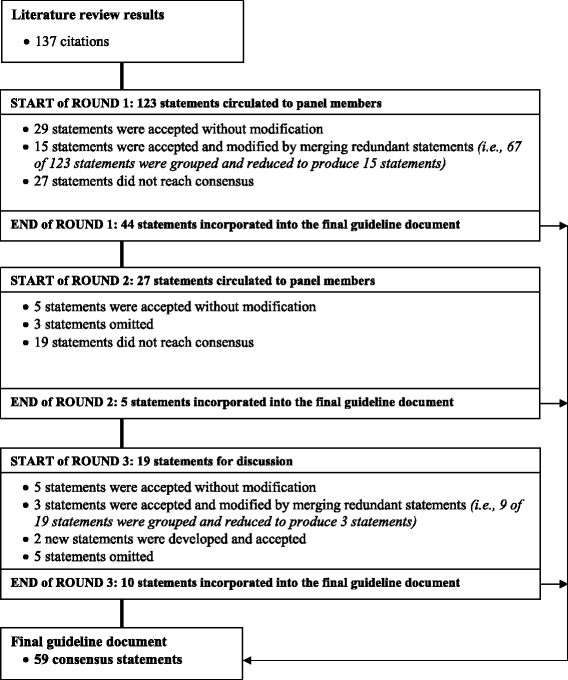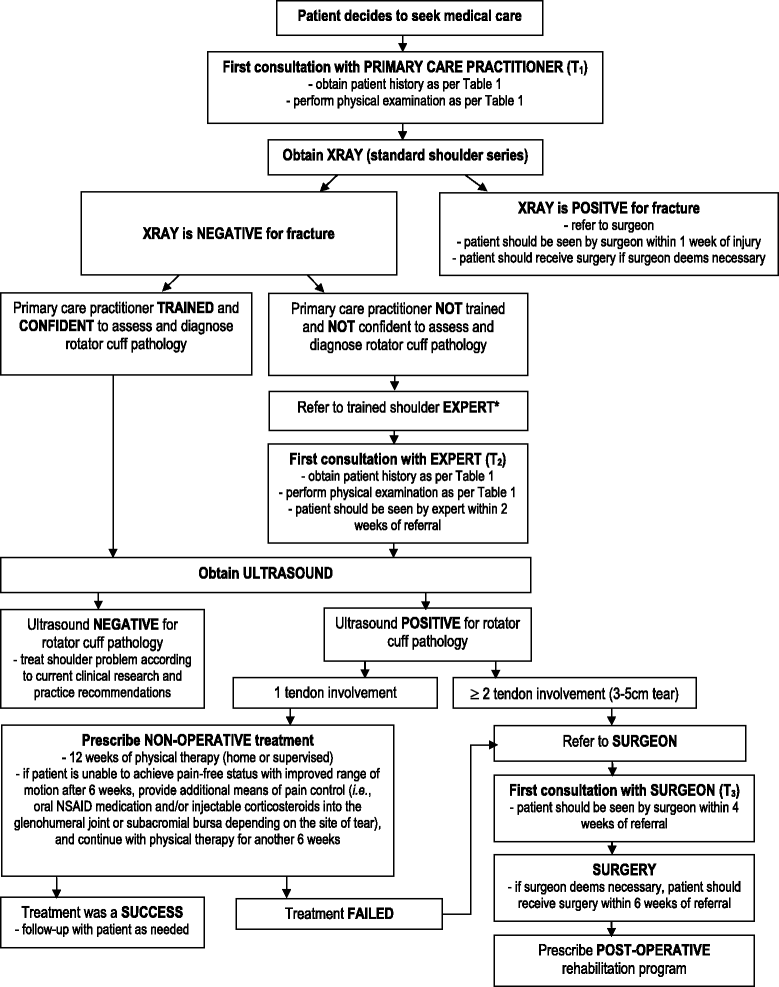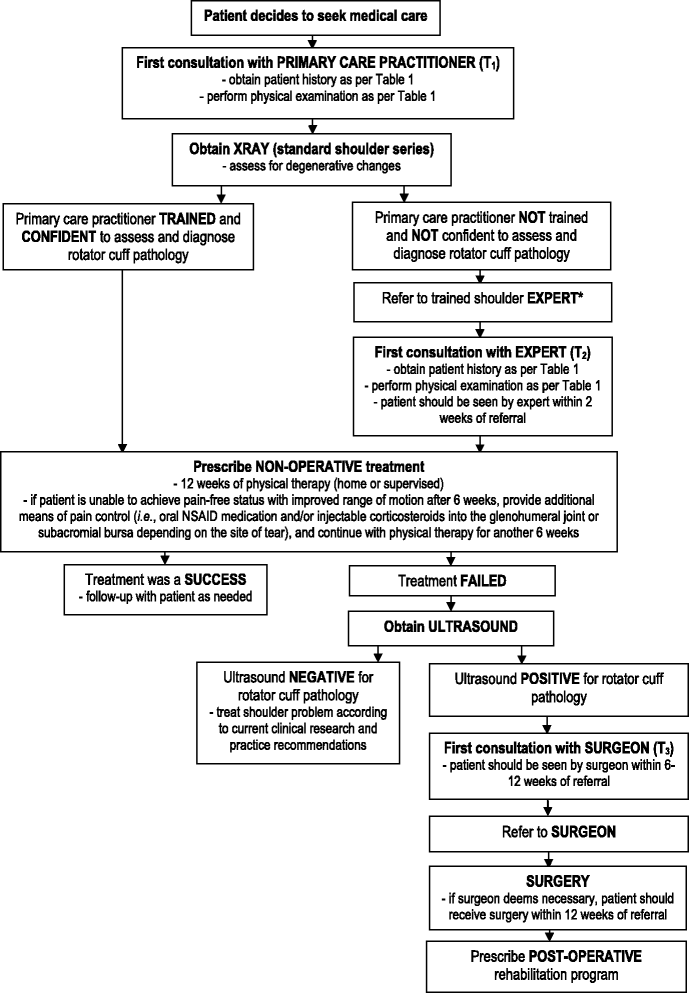Using the modified Delphi method to establish clinical consensus for the diagnosis and treatment of patients with rotator cuff pathology
- PMID: 27206853
- PMCID: PMC4875724
- DOI: 10.1186/s12874-016-0165-8
Using the modified Delphi method to establish clinical consensus for the diagnosis and treatment of patients with rotator cuff pathology
Abstract
Background: Patients presenting to the healthcare system with rotator cuff pathology do not always receive high quality care. High quality care occurs when a patient receives care that is accessible, appropriate, acceptable, effective, efficient, and safe. The aim of this study was twofold: 1) to develop a clinical pathway algorithm that sets forth a stepwise process for making decisions about the diagnosis and treatment of rotator cuff pathology presenting to primary, secondary, and tertiary healthcare settings; and 2) to establish clinical practice guidelines for the diagnosis and treatment of rotator cuff pathology to inform decision-making processes within the algorithm.
Methods: A three-step modified Delphi method was used to establish consensus. Fourteen experts representing athletic therapy, physiotherapy, sport medicine, and orthopaedic surgery were invited to participate as the expert panel. In round 1, 123 best practice statements were distributed to the panel. Panel members were asked to mark "agree" or "disagree" beside each statement, and provide comments. The same voting method was again used for round 2. Round 3 consisted of a final face-to-face meeting.
Results: In round 1, statements were grouped and reduced to 44 statements that met consensus. In round 2, five statements reached consensus. In round 3, ten statements reached consensus. Consensus was reached for 59 statements representing five domains: screening, diagnosis, physical examination, investigations, and treatment. The final face-to-face meeting was also used to develop clinical pathway algorithms (i.e., clinical care pathways) for three types of rotator cuff pathology: acute, chronic, and acute-on-chronic.
Conclusion: This consensus guideline will help to standardize care, provide guidance on the diagnosis and treatment of rotator cuff pathology, and assist in clinical decision-making for all healthcare professionals.
Keywords: Delphi technique; algorithm; clinical practice guideline; consensus guideline; experts; rotator cuff.
Figures



References
-
- Milgrom C, Schaffler M, Gilbert S, van Holsbeeck M. Rotator-cuff changes in asymptomatic adults. The effect of age, hand dominance and gender. J Bone Joint Surg (Br) 1995;77(2):296–8. - PubMed
-
- Herberts P, Kadefors R, Hogfors C, Sigholm G. Shoulder pain and heavy manual labor. Clin Orthop Relat Res. 1984;191:166–78. - PubMed
Publication types
MeSH terms
Associated data
LinkOut - more resources
Full Text Sources
Other Literature Sources
Medical
Molecular Biology Databases
Miscellaneous

